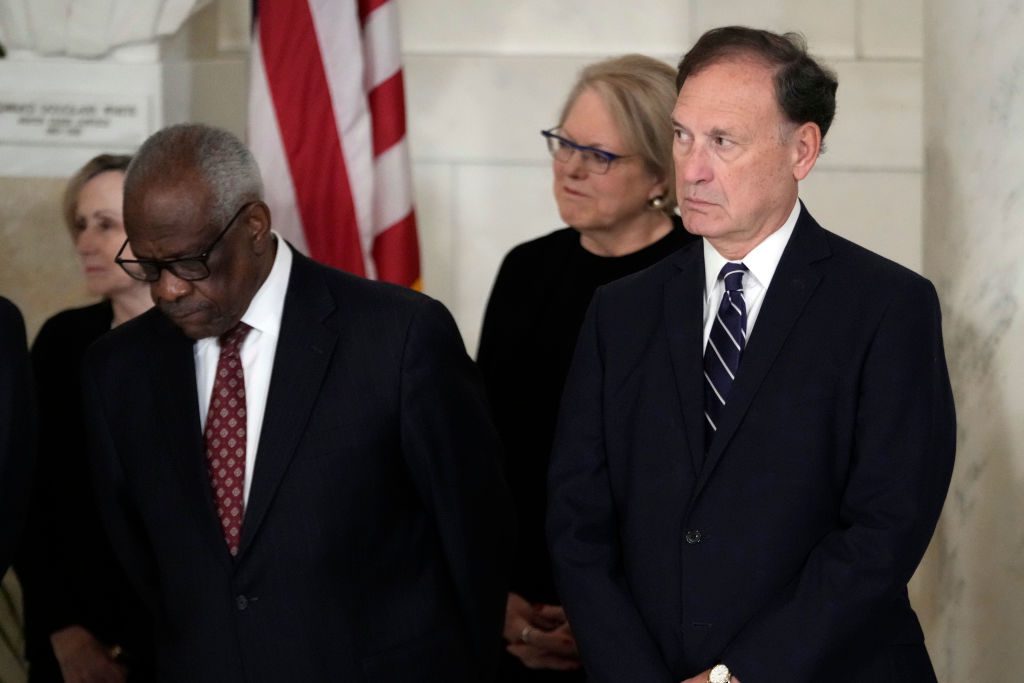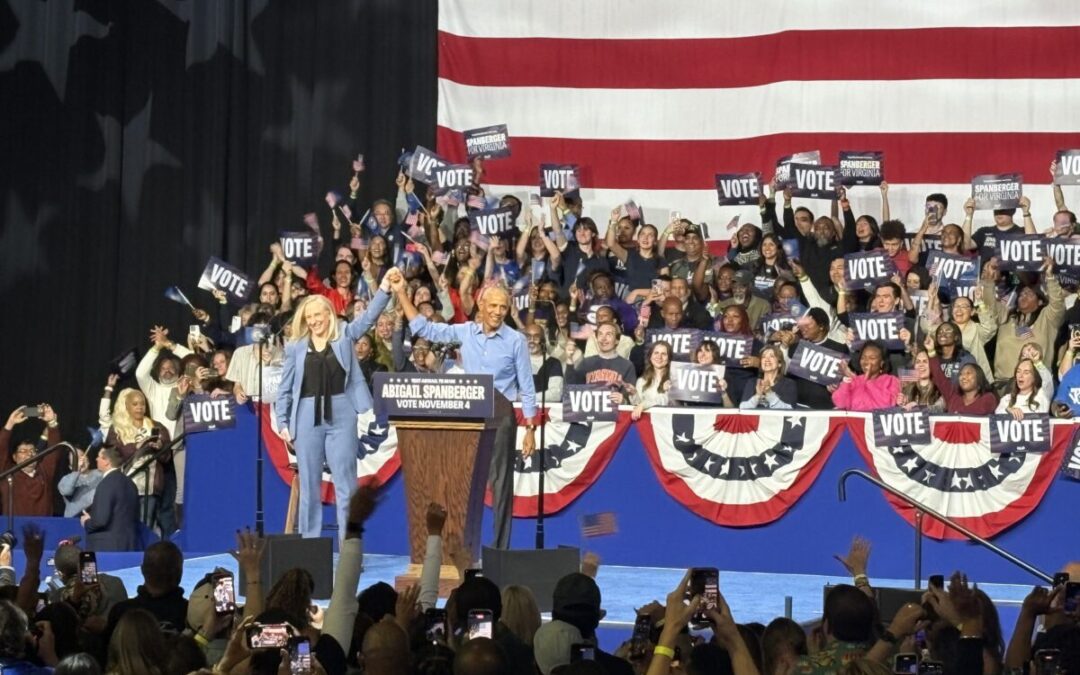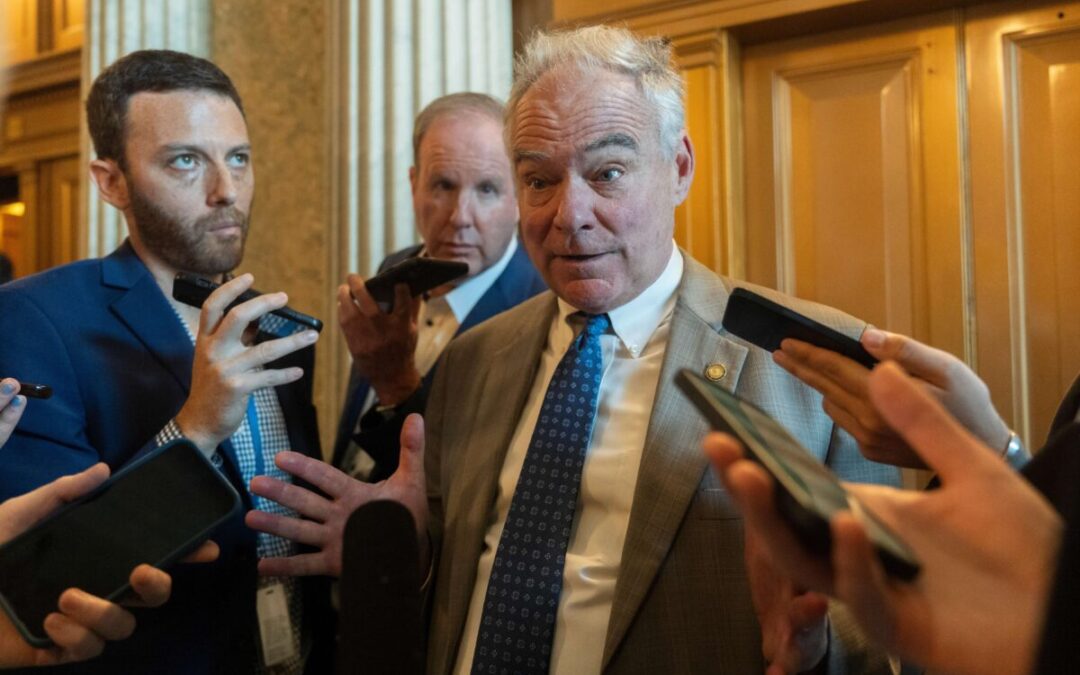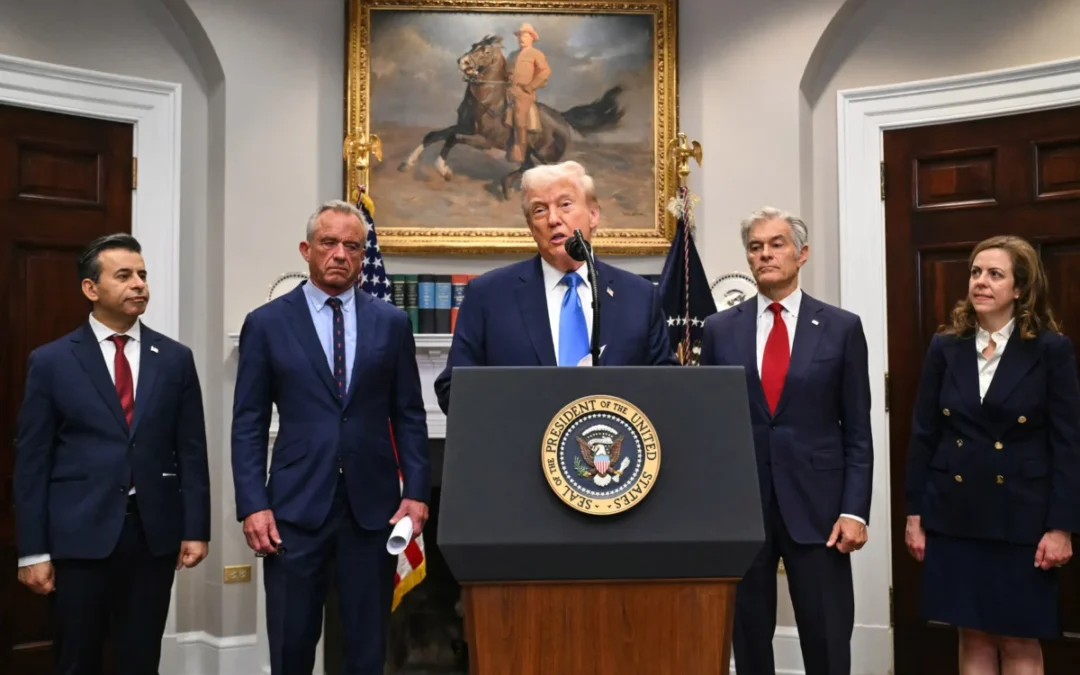
WASHINGTON, DC - DECEMBER 18: Supreme Court Justice Clarence Thomas and Justice Samuel Alito attend a private ceremony for retired Supreme Court Justice Sandra Day O'Connor before public repose in the Great Hall at the Supreme Court on December 18, 2023 in Washington, DC. O’Connor, the first woman appointed to be a justice on the U.S. Supreme Court, died at 93 on December 1. (Photo by Jacquelyn Martin-Pool/Getty Images)
The Supreme Court declared that gifts or payments made to state or local officials after they implement certain political or social actions don’t violate the law. In other words, if you want to bribe a public official, as long as you wait until after they do what you want to pay them or give them a gift, it’s totally legal.
Want to treat your town’s mayor to a tasty steak dinner or, say, a $10,000 check to thank them for approving that infrastructure project you’d get a contract from? Thanks to a decision from six conservative Supreme Court justices this week, you’ve got the green light—as long as you wait until after the project is approved to present your token of gratitude.
In a 6-3 ruling this week, the Supreme Court’s conservative majority narrowed the scope of a federal anti-corruption law and determined that “after-the-fact” payments or gifts to state or local officials did not constitute illegal behavior.
Conservative justice Brett Kavanaugh penned the reasoning for the majority ruling, clarifying the group’s belief that while bribes—defined as rewards promised to public officials ahead of time to encourage certain political or social actions—violate federal anti-corruption statute, gifts or payments doled out after implementation of those actions do not.
In other words: if you want to bribe a public official at the state or local level, as long as you wait until after they do what you want to pay them or give them a gift, it’s totally legal.
In a dissenting opinion, the court’s liberal justices took aim at their conservative colleagues and seemed to call out Justices Clarence Thomas and Samuel A. Alito, Jr., whose own ethical practices have come under fire in recent years.
Conservative justices call some gifts ‘innocuous,’ liberals point to ‘greed’
The case in question, Snyder v. United States, considered whether former Portage, Indiana Mayor James Snyder violated federal anti-corruption law in 2014 when he accepted a $13,000 check from a local garbage truck company after the city granted that company two lucrative city contracts. Snyder was convicted by a jury of receiving an illegal gratuity and sentenced to over a year in prison.
Snyder successfully argued on appeal that his actions amounted to accepting a legal after-the-fact gratuity, not an illegal predetermined bribe, and pushed for his case to be heard before the Supreme Court.
Kavanaugh implied in his reasoning that criminalizing gratuities at a federal level could lead to confusion about the legality of “innocuous” gifts and rewards from satisfied customers or constituents, pointing to examples like families leaving extra tips for mailmen or students “taking their college professor out to Chipotle for an end-of-term celebration.”
Kavanaugh’s comparison of free Chipotle dinners for professors and tips for postal workers to payments made to government officials did not sit well with the court’s liberal justices.
In their dissenting opinion, justices Ketanji Brown Jackson, Elena Kagan, and Sonia Sotomayor expressed concern about what they see as further efforts by conservative justices to make it easier for public officials to enjoy unethical “perks,” so long as they’re not explicitly agreed to before the fact—which could be challenging to prove.
“Officials who use their public positions for private gain threaten the integrity of our most important institutions. Greed makes governments—at every level—less responsive, less efficient and less trustworthy from the perspective of the communities they serve,” wrote Justice Jackson in the dissent.
She continued, calling Snyder’s stance in the case one that “only today’s court could love.”
Ruling underscores concerns about Supreme Court ethics
Jackson’s callout of her conservative colleagues comes as some conservative justices themselves have been embroiled in controversy over perceived unethical rewards from political allies and business interests.
Last year, ProPublica reporting revealed that Justice Thomas had accepted decades’ worth of luxury travel accommodations and other gifts from Harlan Crow, a billionaire conservative donor from Texas.
ProPublica also revealed that Justice Alito—who has more recently found himself at the center of controversy regarding far-right-affiliated flags flown on his property—failed to disclose a luxury fishing trip to Alaska with billionaire Paul Singer. Singer later had multiple business disputes heard before the Supreme Court.
In response to the scandals plaguing the court, Democratic lawmakers unveiled new legislation on Wednesday to push back against what they call a “corruption crisis.” Representatives Jamie Raskin (D-MD) and Alexandria Ocasio-Cortez (D-NY) introduced the High Court Gift Ban Act, which would ban Supreme Court justices from receiving gifts valued at more than $50 in a single instance, or more than $100 total over the course of a year.
“The Supreme Court is the highest court in the land but has the lowest ethical standards,” Raskin said. “Our legislation is an essential first step in bringing some accountability to, and restoring the integrity and reputation of, the Supreme Court.”

Obama rallies with Spanberger in Norfolk
The campaign for Abigail Spanberger said 7,000 people attended a rally where Democrats criticized Republicans for worsening inequality and eroding...

Virginia Dems rush to support federal workers during government shutdown
Virginia’s economy was already under pressure from the Trump administration’s cuts to federal funding and a sluggish labor market. The uncertainty...

‘Sick to my stomach’: Trump distorts facts on autism, tylenol, and vaccines, scientists say
By Amy Maxmen Originally published September 22, 2025 Ann Bauer, a researcher who studies Tylenol and autism, felt queasy with anxiety in the weeks...

Conservative activist Charlie Kirk dies after being shot at Utah college event
OREM, Utah (AP) — Charlie Kirk, a conservative activist and close ally of President Donald Trump, was shot and killed Wednesday at a Utah college...

‘Everybody’s getting something, except us’: VA debate over AI heats up in the Commonwealth
With more than 675,000 veterans in Virginia, lawmakers face pressure to show that new technology can solve the VA’s chronic delays—without...

OPINION: First DC, next Virginia? Why every community must fight for the right to self-govern
When I turned on the news and saw that the federal government had taken over Washington, DC’s police department—despite rapidly falling crime...





